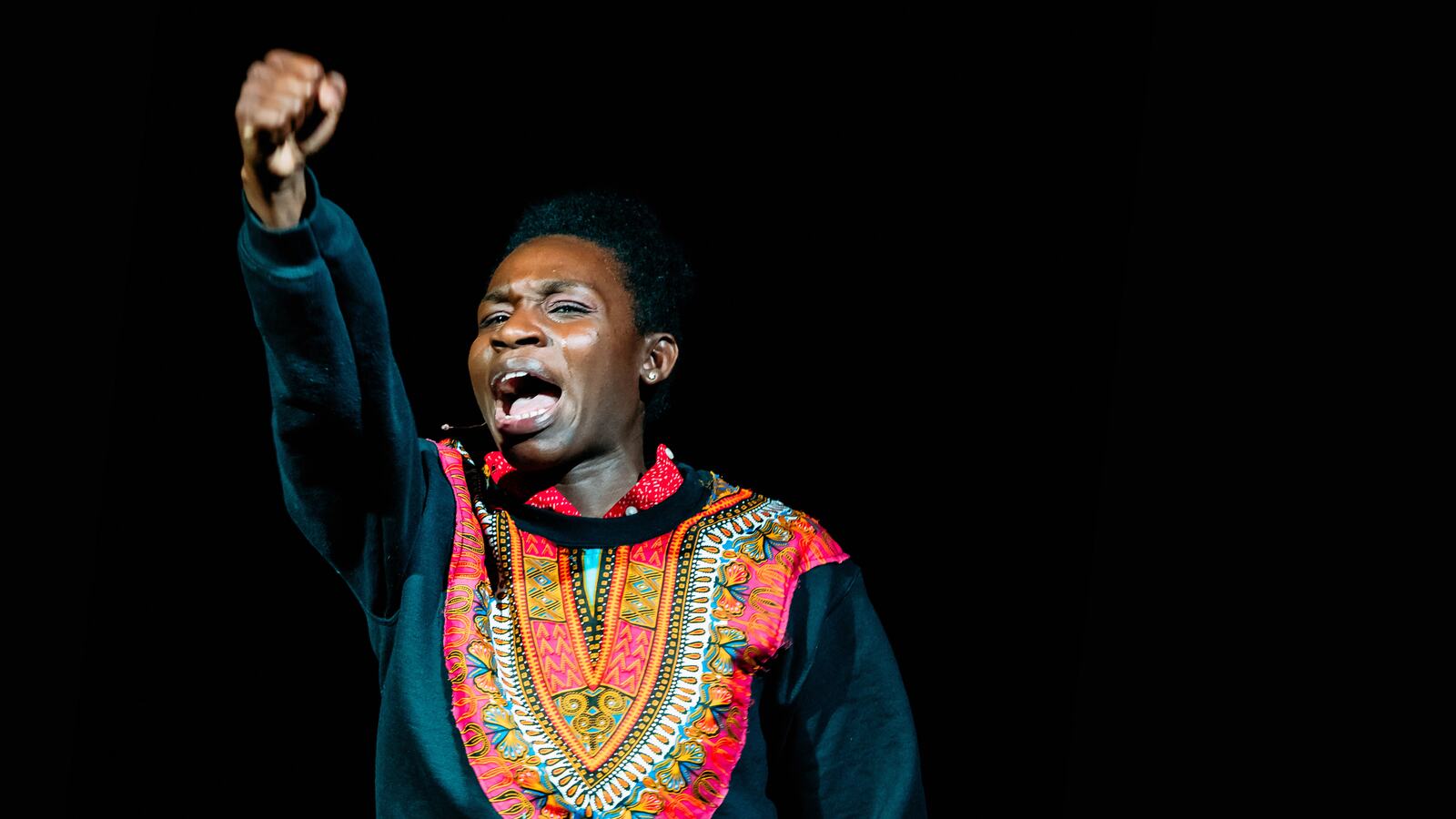Telling the story of a woman fighting an oppressive system is a challenge in itself. In Woke, written by Apphia Campbell and Meredith Yarbrough, Campbell plays not one but two characters struggling to balance activism against personal risk; one a naïve college student who becomes involved in the Black Lives Matter movement, the other the 1960s activist and Black Panther Assata Shakur, who to this day remains in exile from the US.
Campbell switches between the characters seamlessly, gaining an extra spring in her step when playing the young voice student (love-struck, eager-to-please yet powerful), and losing that hopeful sparkle in her eye when performing as Shakur, bitter and burnt from years of living in fear and seeing those around her suffer. It becomes not only a contrast of time periods, but a contrast of experience, and the loss of innocence. In some way, the Black Lives Matter narrative is the more moving of the two, and the more tightly written. Everything begins to fall apart in a Pursuit of Happyness way that is difficult to watch but nevertheless vital, and gives an impression of the weight of trying to cause systematic change. The Shakur narrative, while certainly well-performed and well-informed, only becomes impactful in the latter half of the play. The performance is interwoven with soulful blues songs, and even some monologues are delivered with poetic rhythm. Campbell’s powerful voice sends shivers down the spine, and each sets the tone for the events that unfold.
Woke won the 2017 Scotsman Fringe First Award and is returning to the Fringe this August. With the Black Lives Matter narrative set around the protests of Ferguson in 2014, the memories of the unrest and the movement are undeniably recent. It is a pity, however, that for a show with so much anger, sorrow, and political heft, it does not feel entirely fresh. It still packs a powerful punch, but times change and relevance ebbs. Nevertheless, this dual character study is worth seeing for Campbell’s performance.
